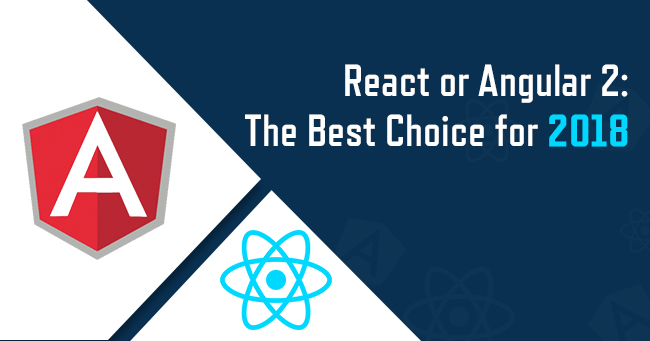AngularJS is a JavaScript framework introduced by the giant Google. It is an open source framework that uses HTML as a backbone. It excels at building single page web applications and the dynamic ones.

The newer version i.e. AngularJS 2.0 is a big change when compared to the previous version. The developers can see a notably major change in components, directives, injections and a lot more. The more functionalities, the more you can achieve with this version.
Over the years, AngularJS has emerged the strongest in the single page apps world. It is used by over 9000 websites. It powers the top sites such as Intel, Virgin America, NBC, HBO, Google and many more.
Why Choose AngularJS?
Developers find this framework completely worth it. This framework is highly convenient, affordable, scalable and delivers good performance. There are so many notable reasons to use this popular JavaScript framework. Some are:
- It has huge community and experts including development, testing and support team
- It is a multifunctional framework following the MVC pattern
- It can create big applications, once used with a right approach
- It uses MVC architecture – simple to use and understand
- It is the best solution for creating the single page applications
- It can allow combining modules for creating applications
- It has a declarative user interface
- It is easy to learn and implement if you know JavaScript already
- It makes testing simple
Now, that you know the benefits of using this framework. Let us find out what all can you do with AngularJS. Here are the seven wonders you can do with AngularJS:
1. Single Page Applications
AngularJS and single page apps are like a match made in heaven. You can develop a large scale application with a single page. It has a set of built-in validators and directives to create such apps. You can also define your own validators if needed. You can create a single page form application easily with its use. The controls and error handling are perfectly handled by this framework.
2. Mobile Apps
With the rise of the digital and mobile era, mobile apps are widely used. With AngularS, you can create mobile and web apps. All you need to do is install MongoDB and NodeJs on your system. Using a set of modules and REST services, you can create your mobile app. You can also bind AngularJS with the mobile framework LungoJS. And you are ready to create the awesome mobile applications.
3. Animations
AngularJS has a good set of directives. You can create animations and give styling to it with ng-style. You can use the ng-app, ng-animate and ng-style directives to create wonderful animations. Along with CSS3 transforms and these directives, you can perform cool animations.
4. Google Chrome Extensions
Normally, a Chrome extension generator creates the chrome extensions. But AngularJs also plays a part in it. The directive ng-CSP helps to create these extensions along with ng-app. You can add content scripts and background pages and bind the APIs. With all these, your desired extension is ready.
5. Firebase Powered Apps
Mobile development platforms have reached a new level with Firebase. The blend of AngularJS and Firebase gave rise to a real-time backend service – AngularFire. This service supports two-way binding on both client and server side. You can efficiently create real-time web apps and mobile apps with these two latest technologies. You can develop a real-time chat application and chatbots. Today millions of users use such apps and services.
6. Simple Web Application
You can also create a web app using Firebase and AngularJS. You can create a simple web application easily with AngularJS directives, components, resources, and services. With a sample data, you can perform the CRUD operations as well. Thus a simple and easy to use web app is ready from scratch. You can also create a web application using Firebase and AngularJS.
7. JS Apps
Like we all know already, AngularJS is easily testable. It is fully powered by the test scripts and suites. Karma and Jasmine are used for testing the AngularJS applications. They run and execute the unit tests for your developed applications.

